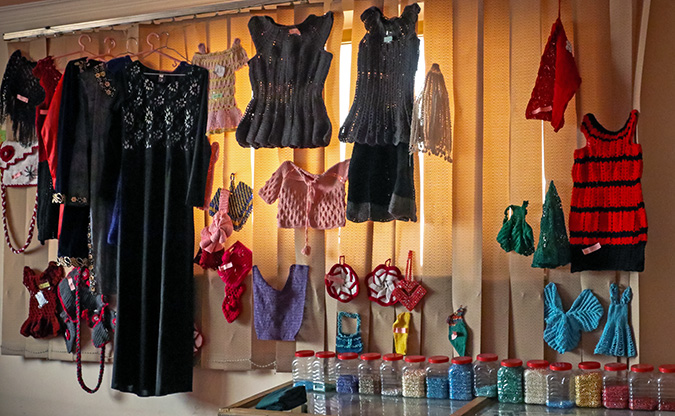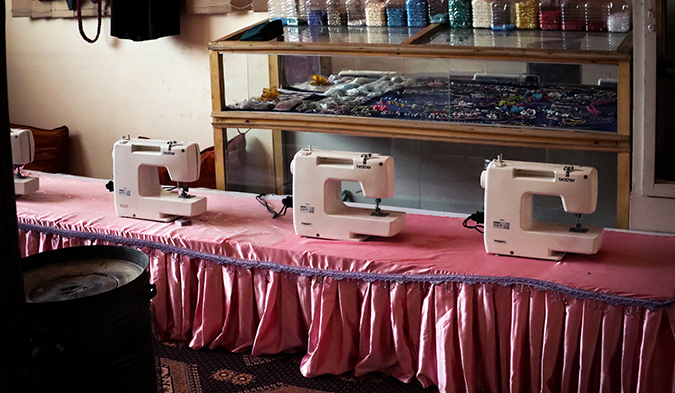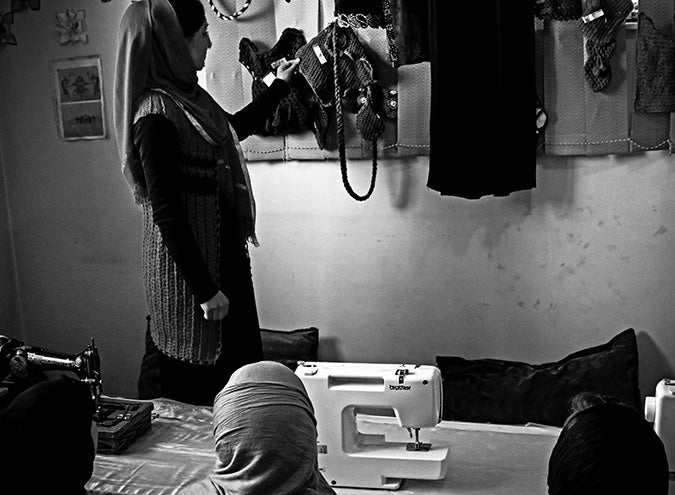From Where I stand… “I grow stronger every day”
Date:
Author: Nangyalai Tanai
One survivor of domestic violence in Afghanistan tells how she was able to heal, regain her independence, and help other survivors.
Razia Shafaq (not her real name) has come a long way since she arrived at the Women’s Protection Centre in Afghanistan covered in bruises and burns suffered at the hands of her husband and his family. Since then, she has been able to learn a trade, finish her schooling, and has started mentoring other survivors. She tells her story in her own words.
“Social attitudes make life difficult for women in Afghanistan. I am constantly being asked where my husband is, how I can pay the rent, who helps me make ends meet, how I earn money, and so on. These questions are very painful to me. Neighbours ask me why I am not more social, why I do not go to their houses or befriend them. In truth, I avoid answering these personal questions, because I do not want them to know that I have been living alone with my two-year-old daughter since leaving my abusive husband five years ago.

One evening, around 9 pm, a neighbour knocked at our door, collecting money from the neighbourhood to pave the area in front of the building. He asked to speak to a male household member to discuss the money. I told him my husband was not home, and that I would give him our contribution in the morning. This is an example of how I avoid telling people about my living arrangements.

I experienced violence at the hand of my husband and his family. I was always told to be tolerant and patient, and that things would change. But the abuse continued for two years. My healing began five years ago, when I came to the Women’s Protection Centre (WPC). I had bruise and burns all over my body back then.
Since then, every day that passed by has, in fact, added to my strength and determination. I grow stronger every day. At the WPC, I learned weaving, tailoring and embroidery. I also made my other dream come true: I restarted my schooling, which I had broken off when I got married. I am empowered and ready to give back to society as well. After becoming a vocational trainer, I help other survivors of domestic violence to rebuild their lives. I share with them my journey of resilience and hope and encourage them to be strong. In my leisure time, I write stories and poems. I am not good but I am trying to improve. I am bringing up my daughter and ensuring that she gets an education and helps people and society in the future. I do not want her to go through what I did.”

Razia Shafaq is in her late 20s. Her name has been changed for her protection. She came to the WPC after surviving kidnapping, forced marriage and violence perpetrated by her intimate partner and his family. Shafaq’s work of training other survivors of violence at the centre and helping them build resilience contributes to Sustainable Development Goal 5 on gender equality and Goal 8 on promoting inclusive and sustainable economic growth, employment and decent work for all including women. The WPC is supported by UN Women, and funded by the governments of Australia, Italy, the Republic of Korea, the Netherlands, Norway and Sweden.